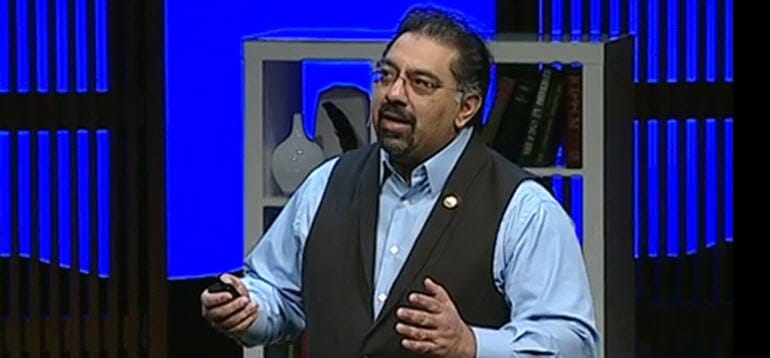With a half foot of snow on the ground, the federal government shut down and many of us working from home, it’s a good day to play some TED talks in the background.
We have three suggestions, all of them dealing with advocacy.
Each of these practitioners plays the game a bit differently, and each brings a different perspective. A former mayor. A former staffer. A career lobbyist — in Europe. Hopefully, all can teach you something new.
Going the Analog Route
Omar Ahmad, the former mayor of San Carlos, California, recommends using that oldest of tools — the hand-written letter — when it comes to making your point. (See the TED Talk here.)
“What actually works?” he asks. “The answer is rather strange. It’s a letter. We live in a digital world but we’re fairly analog creatures. Letters actually work.”
Ahmad blows off communications via email and social media, saying the channels are too crowded. Face-to-face meetings are effective, he says, but difficult to arrange. But all officials — including President Obama — make time to read letters. “Every official I’ve ever worked with will tell you about the letters they get and what they actually mean,” he said.
He also recommends some tips and tricks, including a recommendation to write at least one letter a month. “If you are consistent and do this,” he said, “within three months the elected official will start calling you when that issue comes up and say ‘what do you think?”
Going the Digital Route
Marci Harris, a former congressional staffer, founded Popvox, a non-partisan platform to engage digitally with Congress. Since its birth in 2011, it has delivered hundreds of thousands of messages to Capitol Hill. (See the TED Talk here.)
“Either you move money, or you move people,” she said of the lobbying world. “And it’s always been easy to count the money, pretty much. But counting the people is hard.”
Or, at least, it used to be. She argues that one mighty element in digital engagement the way Popvox does it is that it is transparent, allowing both lawmakers and constituents to see who is saying what. That empowers those in advocacy, and gives lawmakers cover.
“It’s hard to be brave in Congress,” she said. “It’s hard to be brave unless you can point to your constituents and say ‘this is what they are asking me to do,’ whether you are standing up to opposition or your own leadership.”
Going to Europe
Maria Laptev, executive director at the European Centre for Public Affairs and a professor at the United Brussels Institutes, offers perhaps the most civilized defense for lobbying and advocacy yet put on record. (See the TED Talk here.)
“Lobbying is about getting governments to act,” she said. “The lobbyist’s role here is to be that operator — I use the word operator — who gets all the truths out on the table.”
Laptev argues that the increased noise that has come with the digital age has increased accountability and made deception more difficult. As she put it, “truth will out.”
“The liar for hire, I put it to you, can’t survive,” she said. “No longer. Maybe the lobbyist is more of a creator for something greater.”
Do you know of a great TED talk on advocacy not included here? Share in the comments below.


